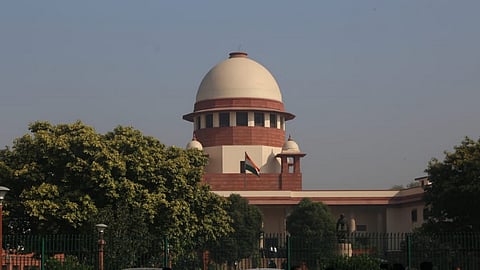

Popular streaming platforms such as, Netflix and Amazon Prime who had so far enjoyed unbridled freedom in the country will soon find their content regulated. The Supreme Court has sought response from the Centre in a plea seeking to devise formal guidelines for content that is allowed on these platforms. A report by MANYA SAINI.
—–
THE Supreme Court Tuesday asked the Central government to spell out its proposed plan to regulate the content on Over the Top (OTT) platforms such as Netflix, Disney+Hotstar and Amazon Prime Video among others.
A bench led by Chief Justice, SA Bobde was hearing a Public Interest Litigation (PIL) plea filed by advocates Shashank Shekhar Jha and Apurva Arhatia.
The petition has sought the court's intervention in monitoring and managing the content on these platforms through the establishment of a proper board and regulatory body. It has argued that the lack of monitoring policy allows public access to objectionable content without any filter. Further, the petition claims that its aim is to protect the constitutional right to life of the people by preventing OTT platforms from abusing their freedom of expression.
Solicitor General Tushar Mehta informed the bench at the beginning of the hearing that, "the issue is being taken seriously and something is already underway." Later, Additional Solicitor General KM Nataraj also appearing on behalf of the Central government said that it had yet to devise steps on finalising OTT regulation.
According to the PIL, popular streaming platforms, both domestic and international have so far resisted attempts to censor content. Netflix, Amazon Prime, Hotstar and Zee5 have not signed off on the self-regulation directives issued by the Ministry of Information and Broadcasting in February 2020.
The petitioners have also cited the COVID-19 shutdown and the closure of cinemas as a cause of concern. They have claimed that digital media platforms have given filmmakers the outlet to release movies and web series which would otherwise be censored prior to a clearance certificate being issued. This includes but is not limited to obscene language, violence, sex, on-screen consumption of alcohol and smoking without any statutory warning.
Recently, several shows such as Tandav, Mirzapur, A Suitable Boy and Sacred Games that have gained popularity on OTT have been criticised for hurting religious sentiments and defamation. The line between self-regulation and censorship was blurred when the markers of Amazon Prime Video's political drama series Tandav issued an unconditional apology and removed scenes deemed objectionable. The FIR against the web-series filed in Uttar Pradesh includes grave charges such as, promoting enmity between different groups, public mischief and injuring or defiling a place of worship.
The OTT industry in the country worth Rs. 4000 crore currently, is expected to grow considerably in the coming years. 15 platforms had come together last year, under an initiative by the Internet and Mobile Association of India (IAMAI) to regulate their content themselves, however, the move failed to get any substantial government support.
In November 2020, the Centre had brought all digital streaming and news platforms under the purview of the Information and Broadcasting ministry for regulation. The notification had led to widespread outrage as the move seemed to be a precursor to future censorship.
As of now, there are no laws, autonomous bodies and guidelines to regulate content on OTT and digital news websites in India.
(Manya Saini is a student at the Symbiosis Institute of Media and Communication, Pune, and an intern with The Leaflet.)